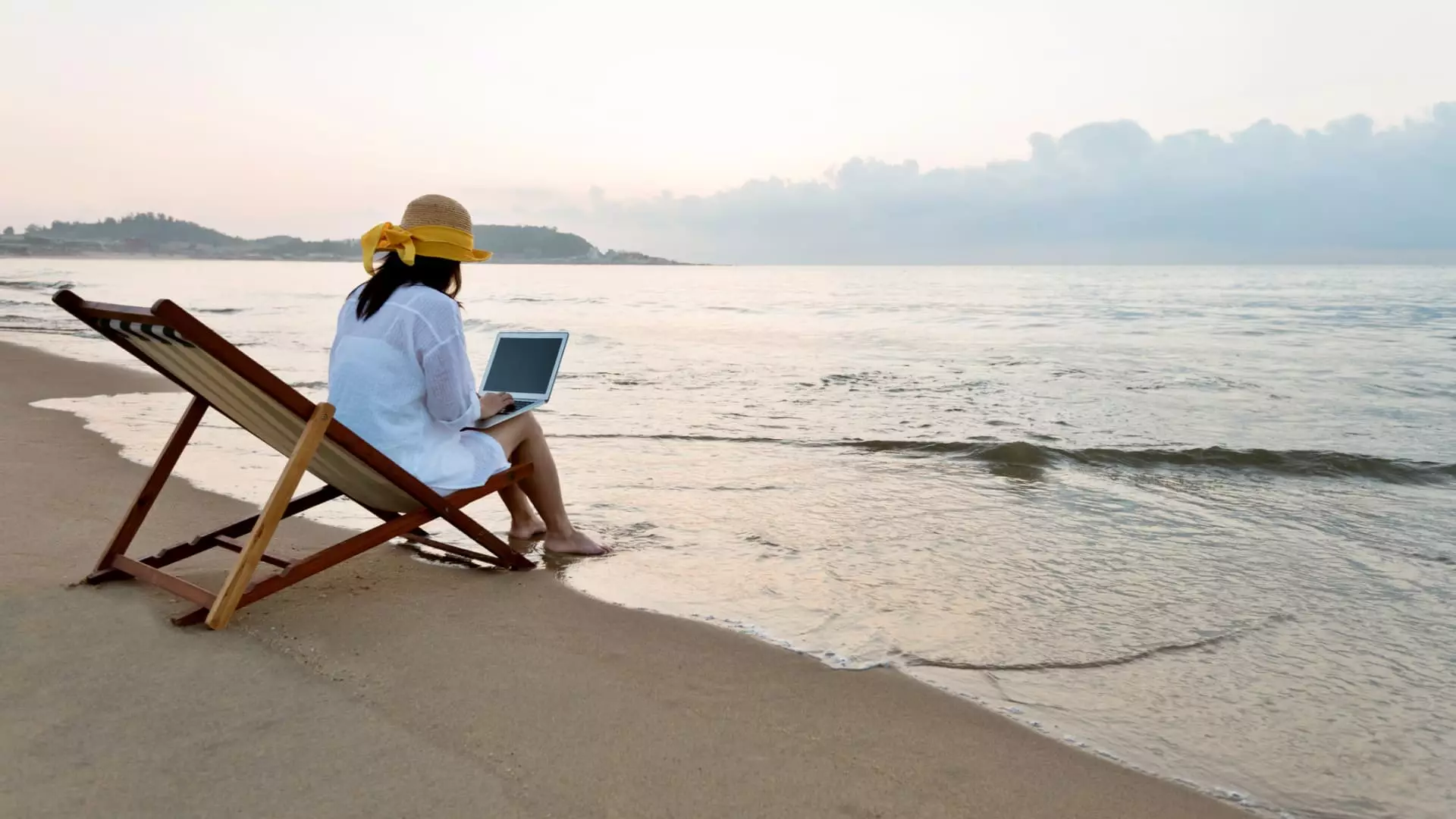The holiday season is a time cherished by many Americans, and this year reflects a significant shift in travel behavior propelled largely by the pandemic’s aftermath. With a noticeable increase in remote work capabilities, more individuals are seizing the opportunity to blend their professional responsibilities with personal vacations. According to a recent Deloitte survey, nearly 49% of employed travelers are now embracing the concept of “laptop luggers,” a term characterizing those who intend to work while exploring new destinations. This marks a significant increase from just 34% last year, illustrating a considerable societal transition towards integrating work and leisure, particularly among younger generations and higher-income groups.
As remote work continues to be a priority for many, surveys indicate a substantial 51% of job seekers consider the flexibility to work from anywhere a top motivation when pursuing remote employment. This change is not only reflective of the evolving workplace but also highlights the importance of lifestyle balance that employees are increasingly seeking. It’s evident that the pandemic has not only impacted how we work but also how we approach leisure and travel, with flexible work arrangements now becoming a key element of holiday planning.
Financial Dynamics Driving Travel Trends
An important facet of this holiday travel surge is the financial capability that varies across different income levels. High-income individuals are currently steering the trends of travel spending, as evidenced by a Morning Consult survey indicating that 52% of those earning $100,000 or more feel they can comfortably afford their travel expenses. This demonstrates a noticeable divide among income groups when it comes to holiday spending and reinforces that, during economic fluctuations, wealthier consumers remain less price-sensitive than their lower-income counterparts.
Furthermore, millennials appear poised to lead the charge in holiday travel plans, with many expressing intentions to embark on approximately 2.6 trips themselves and allocate an average budget of $3,927 for their adventures. Such insights suggest not only a willingness to travel but also a commitment to spending on experiences rather than tangible goods, as these travelers seek to create lasting memories, particularly in a post-lockdown society characterized by pent-up demand.
Strategizing Travel for Cost Efficiency
With rising costs becoming an ever-pressing concern for holiday travelers, many are exploring alternative methods to stretch their budgets without forgoing their plans. The Bankrate report indicates that 83% of holiday travelers are strategically finding ways to save money. Popular strategies include choosing to drive rather than fly, traveling during off-peak times, and taking advantage of credit card points or discounts. This adaptive approach reflects a collective desire to maintain the holiday spirit while exercising prudence amidst financial uncertainties.
The data suggests a broader trend where individuals prioritize experiences over traditional consumption patterns. Although many travelers are adjusting their plans to align with tighter budgets, their eagerness to travel reveals an intrinsic value placed on experiences that contribute to personal well-being and joy. Saving money, therefore, does not equate to sacrificing travel; it’s more about smarter choices that allow for continued exploration.
For those intending to juggle work commitments while embarking on their holiday journeys, there are critical considerations to be mindful of. Julia Pollak, chief economist at ZipRecruiter, advises that travelers should familiarize themselves with their companies’ policies regarding remote work. Many organizations have specific guidelines that could restrict employees from working outside of their designated workspace or state, solely to manage compliance and productivity.
To maximize the benefits of working remotely while traveling, it’s vital to plan the logistics meticulously, ensuring reliable internet connectivity and access to electricity to facilitate work commitments. Those who have the freedom to work from anywhere should prioritize locations where tasks can be efficiently performed without interruptions, allowing for a fulfilling mix of work and leisure.
As the pandemic-related restrictions have lifted, spending on experiential travel has witnessed a remarkable resurgence. Travelers are eager to engage in activities that foster connection, adventure, and discovery, and many are finding joy in returning to the lifestyle they once enjoyed. The collective experience of the last few years appears to have imbued holiday travel with a deeper significance, leading many to appreciate the psychological and emotional benefits of exploring new spaces once again.
The landscape of holiday travel has transformed dramatically through the integration of remote work, financial adaptability, and the cherished value of experiences. As Americans embark on their holiday journeys this season, their choices reflect a profound shift towards more flexible, meaningful, and intentional travel that truly celebrates the spirit of this festive time.

